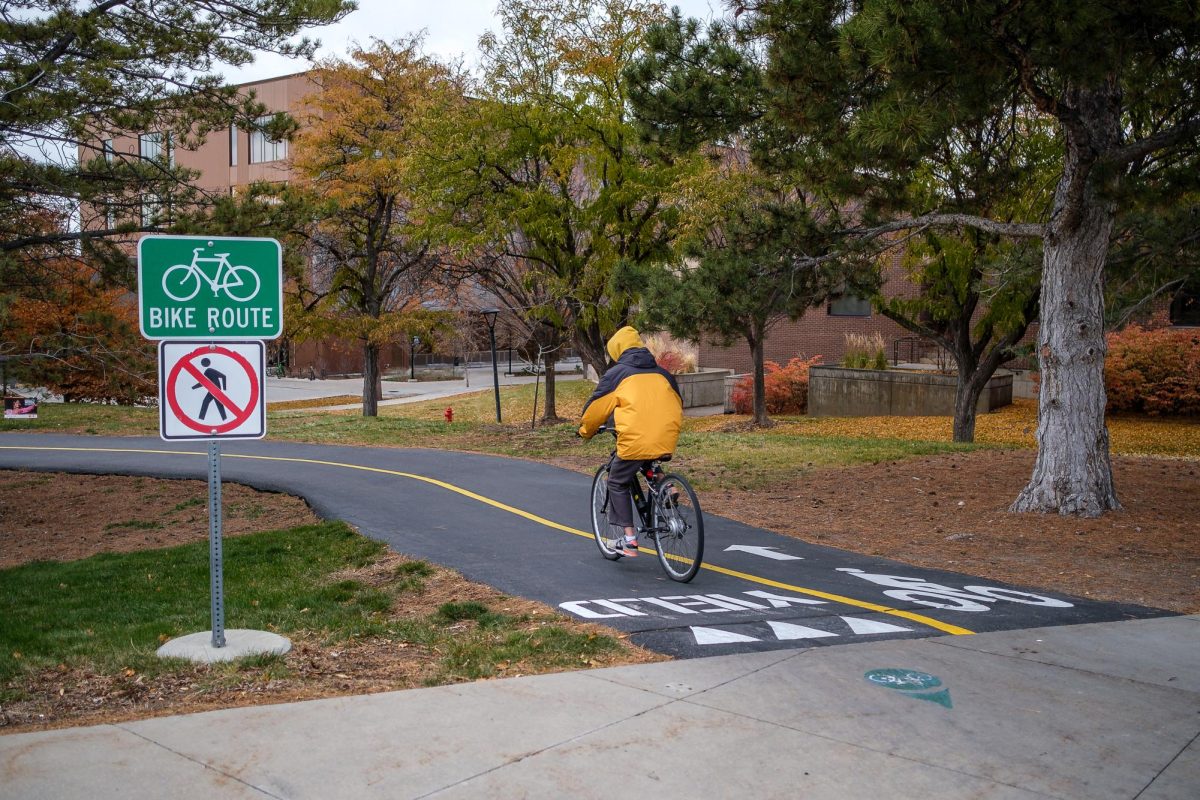The Clear the Air Challenge was a six-week competition that ran from Oct. 1 to Nov 15. It aimed at incentivizing University of Utah students and staff to use sustainable methods of transportation.
“Transportation emissions are responsible for nearly 50% of the pollutants that make up our poor air quality,” the challenge’s webpage read. “This means that the vehicle emissions we produce are hazardous to our health and the health of our community.”
There were a number of prizes participants could win. One top prize was an electric bike with a helmet and a maintenance package. Other prizes included AirPods and select tickets to events in the community like Utah Jazz games and Utah Grizzlies tickets.
There was also an incentive for staff including WellU credit, which helps reduce the cost of healthcare.
“What we are a little more disappointed about was student participation,” Ginger Cannon, interim director at the U’s Sustainability Office, said.
Cannon said the Sustainability Office asked students what they wanted from the competition, leading the office to offer prizes like the E-bike and AirPods.
“But we didn’t see as much student participation, which is really unfortunate because students are actually using sustainable transportation a lot, at higher levels than our employees,” Cannon said.
To help spread the word of the challenge, the Sustainability Office hung tags on bikes and scooters around campus, put up post signs and had UTA put up posters. But, it didn’t seem to work.
Cannon said there was still a very engaged group that participated even though there wasn’t as much student engagement. The top point scorer was a student.
“We saw as many trips taken as we did in 2020,” Cannon said.
Cannon and the Sustainability Office hopes that commuter services will continue to incentivize challenges like this one to motivate people to use other forms of transportation.
“Even just leaving their car parked once a week makes all the difference,” Cannon said.
The challenge’s webpage listed several “strategies for success” that participants of the challenge, and those outside it, can use to reduce transit emissions. These included taking public transit, grouping errands instead of going home between trips, avoiding unnecessary trips and telecommuting. Commuter Services has information on transit options on its website.
The sustainability office at the U also runs a farmers market on campus every fall. This farmers market also recently inspired students to create their own mini market in Lassonde Studio.
“We had a student-run, basically a mini farmers market, at Lassonde. It was students that were producing goods and they brought them to sell,” Cannon said. “It was fabulous.”
Students can find out more about other sustainability initiatives through the Sustainability Office’s website. The results of the Clear the Air Challenge will be posted after Thanksgiving.




